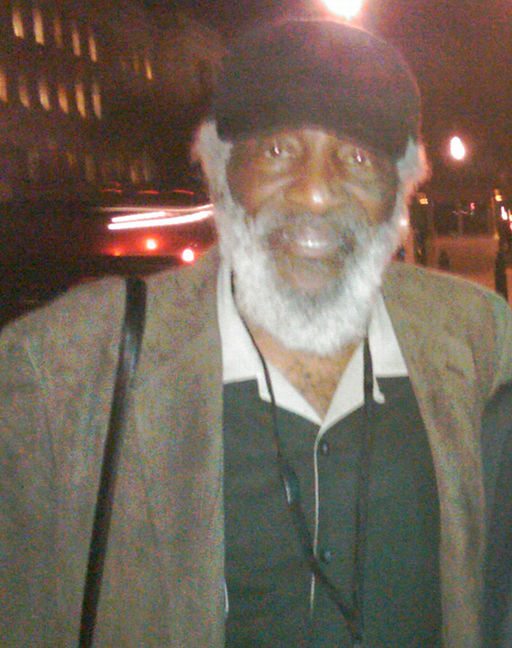
August 19, 2017; Variety
I never learned hate at home, or shame. I had to go to school for that.
Segregation is not all bad. Have you ever heard of a collision where the people in the back of the bus got hurt?
I never believed in Santa Claus because I knew no white dude would come into my neighborhood after dark.
Where else in the world but America could I have lived in the worst neighborhoods, attended the worst schools, rode in the back of the bus, and get paid $5,000 a week just for talking about it?
Legendary comedian and civil rights activist Richard Claxton “Dick” Gregory (October 12, 1932–August 19, 2017) is celebrated for having been as courageous as he was funny.
Sign up for our free newsletters
Subscribe to NPQ's newsletters to have our top stories delivered directly to your inbox.
By signing up, you agree to our privacy policy and terms of use, and to receive messages from NPQ and our partners.
He marched in Selma, was jailed countless times for protesting, was shot in the leg during the 1965 Watts riots, and endured hunger strikes for causes ranging from the Vietnam War (which began a close friendship with John Lennon that inspired the song “Imagine”) to his solo trip to Tehran to help free the Americans held in the U.S. Embassy (his fast reduced him to 97 pounds before he was forced by the Iranian revolutionary government to leave). Gregory stood alongside Gloria Steinem and other feminists in support of their protests. Gregory lost the race for mayor of Chicago in 1967 to Richard Daley and then entered the race for U.S. president a year later as a write-in candidate on the Peace and Freedom Party ticket. More recently, he fasted to protest capital punishment and the death of Troy Davis. He was there for Occupy Wall Street. Like Muhammad Ali, Gregory transcended his profession and suffered enormously for his convictions.
The Rev. Martin Luther King Jr., Medgar Evers, Malcolm X, and contemporary leaders counted Gregory as a confidant. He worked for justice until the end, writing a guest column at Variety as just one contribution. In a recent post, he urged readers to appreciate the gains for justice that have been achieved.
“Love will always be triumphant over hate,” Gregory wrote. “I have seen progress like most cannot appreciate because they were not there to bear witness.…The reality is far from perfect, but profoundly better than what daily reality was for my generation.”
The St. Louis native began his iconic career as a stand-up comic during the 1950s, while serving in the military, and became one of the first black comedians to receive acclaim performing for predominantly white audiences. Gregory cynically satirized racism and other social ills during his routines while avoiding profanity. “When I started, a black comic couldn’t work a white nightclub. You could sing, you could dance, but you couldn’t stand flat-footed and talk—then the system would know how brilliant black folks was,” Gregory recalled in this 2016 interview.
When invited to appear on the television show, The Tonight Show Starring Jack Paar, Gregory insisted that Paar invite him to sit on the couch after his performance—exposure denied to blacks at the time. That groundbreaking conversation launched Gregory’s career. The New York Times called him a precursor to such comedians as Richard Pryor. Gregory is ranked 81st on Comedy Central’s list of the 100 greatest stand-ups of all time. More importantly, he also is listed among the world’s greatest civil rights leaders, along with Thomas Paine, William Wilberforce, and Gandhi.
An admirer of Gandhi, Gregory embraced nonviolence and became a vegetarian and marathon runner. He also spoke about the transformative powers of prayer and good health. Gregory used his fame to change the world. His survivors include his wife, Lillian, whom he married in 1959, and his 10 children (one child died at two months). His generous life benefited us all.—James Schaffer












